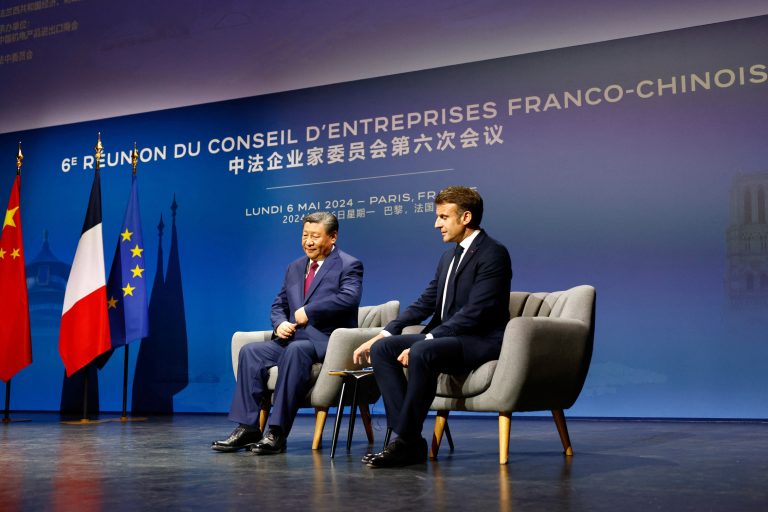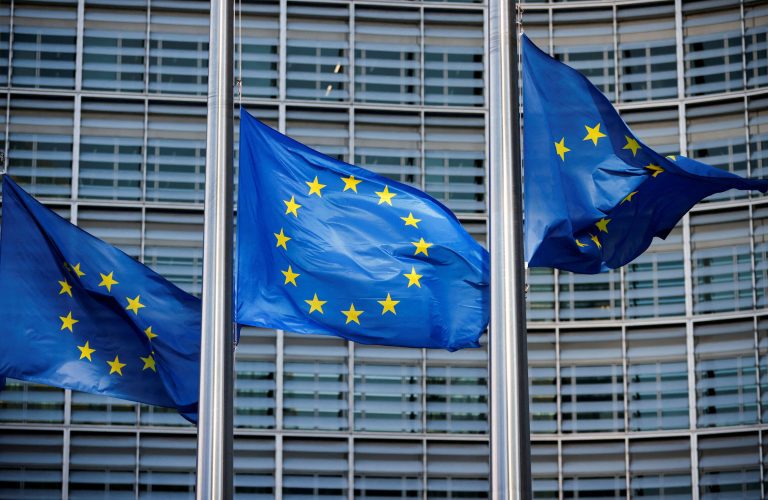During Chinese leader Xi Jinping’s visit to Paris, French President Emmanuel Macron and EU Commission chief Ursula von der Leyen urged him to ensure more balanced trade practices with the West, and pressed him on the Ukraine situation.
Making his first trip to Europe in five years, Xi’s visits comes at a time of growing business tensions. The European Union is investigating Chinese industries such as electric vehicle exports, while Beijing probes mostly French-made brandy imports.
Macron said Europe and China needed to resolve structural difficulties. “The future of our continent will also very clearly depend on our capacity to further develop in a balanced way our relationship with China,” he said as the three sat at a round table under the gilded ceilings of the Elysee Palace.
According to the EU Commission’s president Von der Leyen, the bilateral relationship has suffered from unequal market access and Chinese state subsidies that unfairly boost its otherwise vastly bloated industrial capacity. The European Union “cannot absorb massive over-production of Chinese industrial goods flooding its market,” she said after the meeting.
“Europe will not waver from making tough decisions needed to protect its market,” she added, while also saying that Xi had played a positive role in helping calm the nuclear threat from Russia, which has tense relations with the West over its war on Ukraine.
Success
You are now signed up for our newsletter
Success
Check your email to complete sign up
Recently U.S. Treasury Secretary Janet Yellen said that Washington would not accept new industries being “decimated” by Chinese imports.
- EU Appeased Beijing With Trade Deal Because of Corporate Pressure: Peter Navarro
- China’s Overseas Product Dumping: Addressing Unfair Competition Caused by Systemic Differences
Xi, who is simultaneously the head of the Chinese government and general secretary of the Chinese Communist Party (CCP), made brief comments to the public, saying he viewed relations with Europe as a priority of China’s foreign policy, and that both should stay committed to the partnership.
During the meeting the CCP chief said: “As the world enters a new period of turbulence and change, as two important forces in this world, China and Europe should adhere to the positioning of partners, adhere to dialogue and cooperation.”
Uneven approach
The EU’s 27 member states are not unified in their attitude towards Communist China. France and Germany for example have a different approach, something that frustrates the EU’s diplomacy with Beijing. While Paris advocates a tougher line on the EV probe, Berlin wants to proceed with more caution.
German Chancellor Olaf Scholz did not join Macron and Xi in Paris due to prior commitments.
Some French government officials say privately that they are concerned Berlin will try to undermine the electric vehicle probe. China is a key market for Germany’s export-led economy and its carmakers such as BMW and Mercedez-Benz.
French cognac makers exposed to China’s retaliatory anti-dumping investigation include Remy Cointreau, Pernod Ricard and LVMH-owned Hennessey.
Bruno Le Maire, France’s finance minister, told a Franco-Chinese business forum that France and China could legitimately support their domestic industries, but any such policies had to be fair and reciprocal. “We are currently far from balanced,” he added.
Officials said France also hopes to push to open the Chinese market for its agricultural exports, and resolve issues around the French cosmetic industry’s intellectual property rights. During Xi’s visit, Beijing could announce an order for around 50 Airbus aircraft.
China also faces mounting pressure from Western countries to convince Moscow to halt its war in Ukraine. While Xi made a phone call to Ukrainian President Volodymyr Zelensky shortly after Macron visited Beijing last year, the Sino-Russian relationship has only gotten deeper, with Beijing providing critical industrial support for the Kremlin’s military production.
Reuters contributed to this report.








